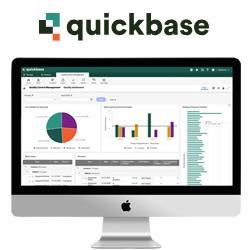LATIN AMERICA AND CARIBBEAN ATTRACT INCREASING SHARE OF GLOBAL CLEAN ENERGY INVESTMENT
Funding diversifies across the region as emerging LAC countries promote deployment and strengthen policy support
London, Washington,16 October 2013 – The 26 countries of Latin America and the Caribbean are accounting for a rising share of global clean energy investment as governments in the region strengthen policy support and local supply chains expand, according to Climatescope 2013, a new report from the Multilateral Investment Fund (MIF), member of the Inter-American Development Bank Group and Bloomberg New Energy Finance (BNEF).
Climatescope, sponsored by the MIF and researched by BNEF, is an assessment, index and interactive web tool focused on the clean energy market. First released in 2012, it rates Latin American and Caribbean countries on the ability to attract low-carbon energy investment. This year, nations were scored on 39 data points categorized into four broad parameters: (I) Enabling Framework, (II) Clean Energy Investment and Climate Financing, (III) Low-Carbon Business and Clean Energy Value Chains and (IV) Greenhouse Gas Management Activities.
In all, the Latin American and Caribbean region captured 6% of the total $268.7bn invested worldwide in clean energy in 2012, up from 5.7% in 2011 (Clean energy is defined as wind, solar, biomass, small hydro, geothermal and other renewable power generation, and biofuels). Investment in the region declined 3.8% from 2011 to 2012, far less than the 11% global pullback recorded over the same period.
"Policy frameworks are expanding and strengthening in Latin America and the Caribbean, and the actionable information provided by the Climatescope is helping to reduce information gaps and catalyze new investment in clean energy," said Nancy Lee, General Manager of the MIF. "The rapidly falling costs of clean technologies such as solar and wind power combined with an improved investment climate means that clean energy generation in the region is now truly affordable. The MIF will continue supporting Latin America and the Caribbean's progress."
Climatescope's research partner, Bloomberg New Energy Finance, tracked clean energy policies in Latin America and the Caribbean. As of the end of 2012, BNEF identified 110 such policies, up from 80 at the end of 2011.
Climatescope 2013 also tracked a dramatic rise in the diversification of investment destinations in the region.
"The growth of clean energy investment outside Brazil in 2012 was significant," said Michael Liebreich, chief executive of Bloomberg New Energy Finance. "Total financing outside Latin America's largest country jumped to 45% in 2012 from 17% in 2011, as Chile, the Dominican Republic, Mexico and Uruguay, among others, posted outsized growth rates."
Still, Brazil had the highest overall composite Climatescope score on the strength of its top rankings on the survey's Low-Carbon Business and Greenhouse Gas Management parameters. This marked the second year that Brazil ranked first overall in Climatescope.
Chile moved up three positions, to second place overall, after its renewable investment more than quadrupled, to $2.1bn, from 2011 to 2012.
Nicaragua, with the region's second-lowest GDP per capita, finished third overall with a strong showing in the Enabling Framework and Clean Energy Investment and Climate Financing parameters.
The top Climatescope score for a Caribbean nation was earned by the Dominican Republic, which saw a year-over-year doubling of clean energy investment to $645m. This helped the country advance seven slots up the leader board from the 2012 rankings – more than any other Climatescope country.
Other key findings of Climatescope 2013:
*Tenders for clean power contracts are on the rise and foreshadow greater deployment in the future.
*Eight countries now have net-metering laws, which allow self-generators to feed their surplus power back to the grid.
*Retail power prices remain generally high across the region, offering significant opportunities for deployment of renewables.
*The region's clean energy value chain is expanding, with 35 out of 40 chain segments in six renewable sectors now occupied.
*There are 927 carbon offset projects, registered under different standards in the region, with more than half pertaining to power generation.
Featured Product

Quickbase: The first application platform built for dynamic work
By connecting everything through a single source of truth, the Quickbase platform helps businesses mitigate risk, reduce waste, and cut down on unexpected costs. With automated workflows and granular permissions, the right people will have access to the right information.
